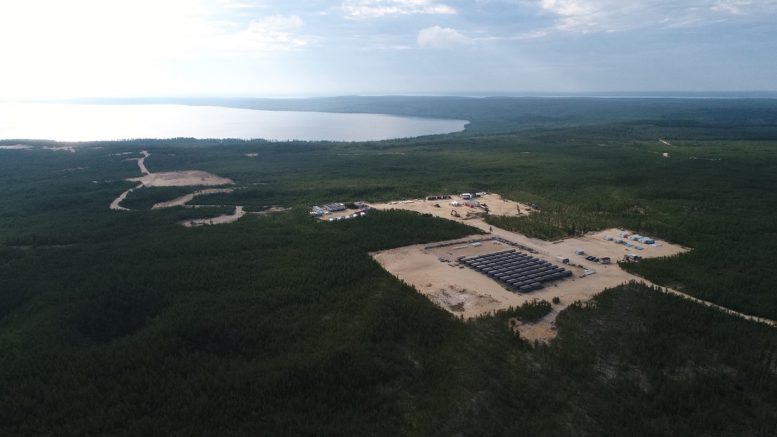Fission Uranium (TSX: FCU; US-OTC: FCUUF) has agreed to be acquired by Australia’s Paladin Energy (ASX: PDN; US-OTC: PALAF) in an all-stock agreement valued at about $1.1 billion.
The acquisition will give Paladin the permitting-stage Patterson Lake South uranium project in Canada’s Athabasca Basin. It also operates its recently restarted Langer Heinrich uranium mine in Namibia.
Under the deal, Paladin will purchase 100% of Fission shares at $1.30 at an implied equity value of $1.1 billion. Existing Paladin shareholders will own about 76% of the combined company, while existing Fission shareholders will own 24%. Fission shares closed at $1.03 in Toronto on Friday, and rose to $1.18 late Monday.
The combination of Paladin and Fission will create a clean energy leader with an enhanced project development pipeline, multi-asset production expected by 2029, and a diversified presence across leading uranium mining jurisdictions like Canada, the companies said in a release.
“Fission is a natural fit for our portfolio with the shallow high-grade PLS [Patterson Lake South] project located in Canada’s Athabasca Basin,” Paladin CEO Ian Purdy said in a release. “The addition of PLS creates a leading Canadian development hub alongside Paladin’s Michelin project, with exploration upside across all Canadian properties.”
Fission president and CEO Ross McElroy noted the companies have complementary cultures and both sets of shareholders will benefit from the merger.
“The combination of Fission and Paladin will create a world class diverse uranium producer, adding a class leading development project in a Tier 1 jurisdiction with the ability to expand production and cash flow profiles in the near term,” McElroy said. “With commercial production at Langer Heinrich and further development milestones at PLS, this opportunity will create a diverse pureplay uranium company with current production and a deep pipeline of near and mid-term assets available to investors.”
The deal offers a 13% premium to BMO Capital Markets’ target price for Fission and a 26% premium to the junior’s last closing price, mining analyst Alexander Pearce said in a note to clients.
“Significantly on closing, the transaction would bring immediate exposure to a mid-scale producing uranium mine in Namibia to Fission shareholders,” he wrote. “Further, the transaction could mark the beginning of additional M&A interest in the sector.”
The merger will require a shareholder vote on Fission’s part, with two-thirds approval. It will also require regulatory approval, including under the Investment Canada Act.
PLS project
Fission has applied for a licence to build a uranium mine and mill facility at PLS in Saskatchewan, home to the world’s richest uranium mines. The project hosts the Triple R deposit — the region’s largest high-grade deposit at shallow depth. A January 2023 feasibility study outlined Triple R’s potential to become one of the lowest cost uranium mines in the world. The company is set to continue developing PLS through the permitting and licensing phase and on to construction and production by 2029.
The feasibility study showed a 10 year mine life for an underground only operation at Triple R with an initial capital cost of $1.1 billion. The after-tax net present value (at an 8% discount) was estimated at $1.2 billion, and the internal rate of return at 27.2%. Operating costs were pegged at $13.02 per pound. The mine is expected to take three years to build, and turn out life-of-mine production of over 90 million lb. of uranium oxide.
Paladin also owns exploration licences in Canada including the Michelin deposit in Labrador with a total resource of 92 million lb. uranium.
The transaction is targeted to close in the September 2024 quarter.


Be the first to comment on "Paladin Energy to acquire Fission Uranium for $1.1B in all-stock deal"